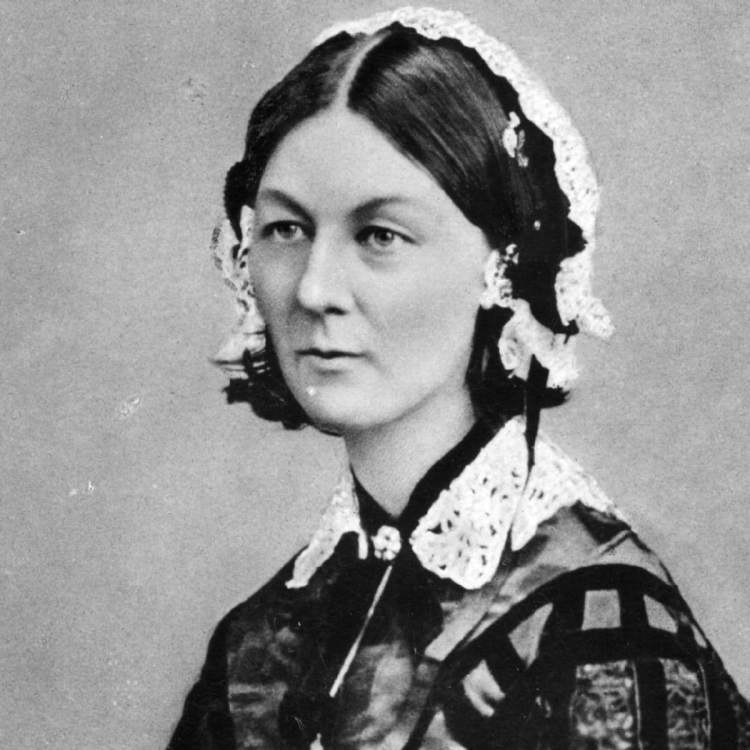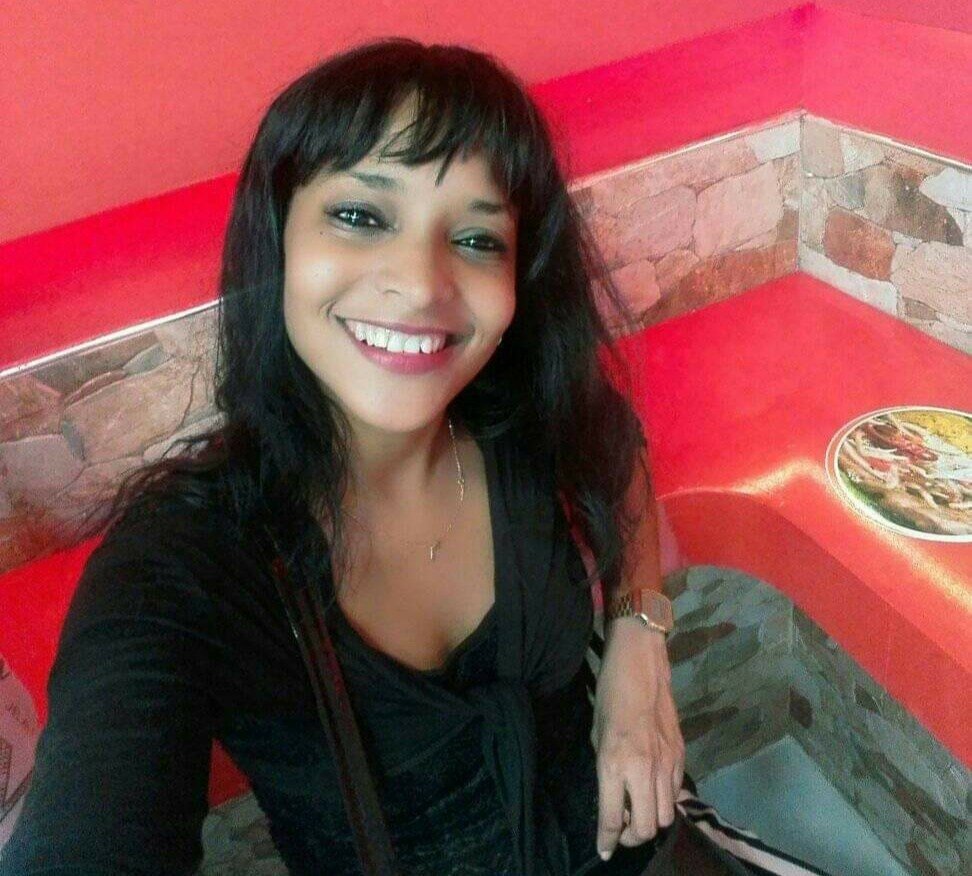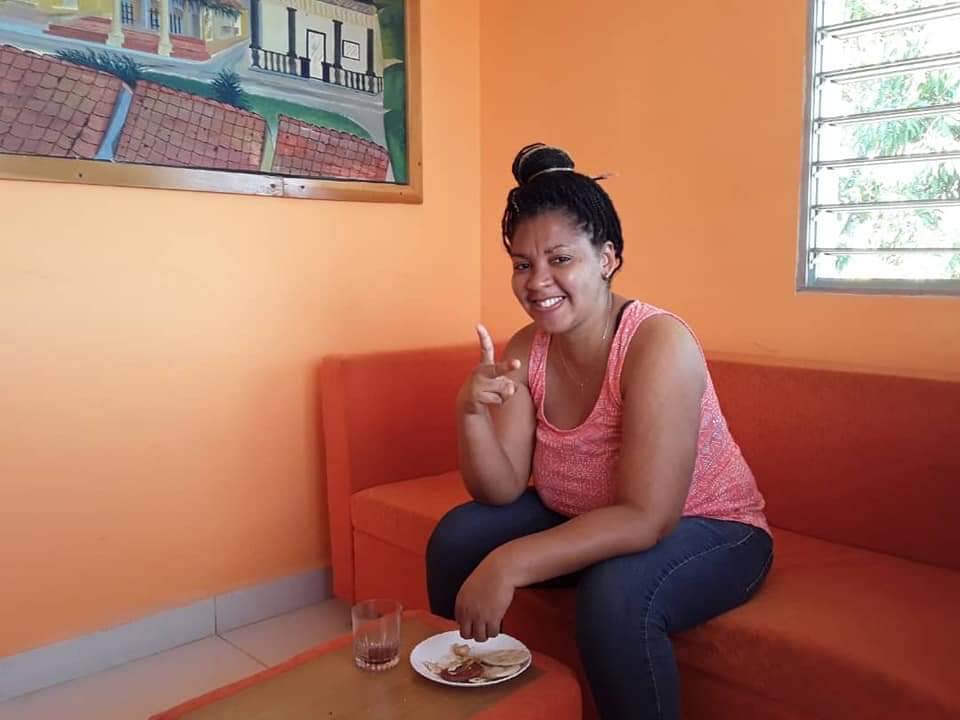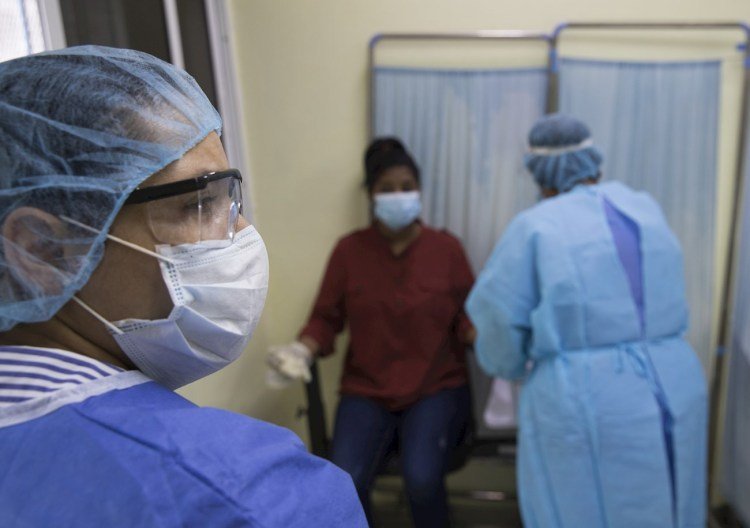This year the World Health Organization (WHO) designated 2020 as year of the Midwifery and Nursing staff, in recognition of the altruistic work carried out by these health professionals.
World Nursing Day is celebrated on May 12, the date established for the birth of Florence Nightingale, pioneer of modern professional nursing, and whose 200th anniversary of her birth is commemorated this year.

Sacrifice and dedication are words of order for those who decided to dedicate their lives to caring for the sick day and night, with a devotion that few would understand.
In the current circumstances, the work of nurses is vital in caring for patients related to the COVID-19 pandemic, is thanked daily by people around the world with applause for such a noble profession.
A few years ago, Natacha Mesa Sánchez was not clear about what she wanted to do with her life, she had just finished junior high, and “at just 15 one is not ready for such an important decision that will mark your life,” she tells us.
“I remember that one of my great aunts sat one day in my room and told me: I see that you have a vocation as a nurse, and I asked her why. She told me that she saw how I liked helping people, she saw that I felt identified with the pain of others and that this profession is the best path that I could follow.”
“So that’s what I did,” she says, “and went with my mother, as always, to carry out the relevant procedures. This path has taught me the great pleasure that one feels when helping a patient, that smile of gratitude that I have seen, because many times they cannot speak because of their pathologies, sometimes even a tear of emotion, in a patient who cannot speak, tells me with the eyes: thank you.”
The young intensive care nurse works in the cardiovascular ward of the Hermanos Ameijeiras Hospital and affirms that “nursing is not just the practice of having to inject or channel a vein. It is also the psychological support that is provided, the words of encouragement that one sometimes has to give to family members or the patients themselves, that is appreciated. One is very satisfied when that person who was on the verge of death is freed from the clutches of its claws. That’s nice, more to me since I’m an intensive care nurse. If I were born again I would study nursing again. I love my profession and I try to do it with love every day.”
At just 18, she started working in the intensive care area of the Salvador Allende Hospital. “I remember that the first case that had an impact on me was a girl my age who had fulminant bacterial meningoencephalitis, she was alive because of life support. I came home crying. My mom sat me down and told me: ‘this is the profession you chose, this will not happen just once, it will happen many times, or you get hardened or you quit.’ In my next shift I tried to be stronger; I asked the other nurses and doctors who had been there for years for advice.
“As time went by I created a protective shield; almost 13 years have already passed, I am still in intensive care and there is always a case that moves me. I recently had a very young patient, barely 20 years old, who had been waiting for a heart transplant for a long time, essential to keep him alive, and when the operation finally came, he couldn’t stand it. Once again I cried, I sensitized myself and it was hard, very hard. That is something that I think is inevitable because above all, we are human and the day that sensitivity is lost, we become a monster.”
Although Natacha chose her profession from a very young age, Susset Alcover’s case was a little different. This Cuban nurse residing in the United States began working in this profession a little over a year ago, “on April 29, 2019, coincidentally during the week that celebrated nurses last year,” the young professional woman comments to OnCuba.
“Before coming to the United States, I was studying economics at the University of Havana. When I came I started economics again here but in the first or second semester I changed to nursing. What made me change was taking care of my grandmother; I realized that I felt a lot of love and that I had a lot of patience to deal with the elderly, bathe them, give them food, cheer them up, be there for them.” Once again, the vocation is imposed.
The life of these people is usually full of sacrifice. Dealing daily with stressful situations requires a lot of calm and concentration to face the adversities of the work routine.
“One creates a protective shield to a certain extent, because if not, it affects my nerves, it’s difficult when dealing with patients, also with relatives, sometimes it’s more heartbreaking to see the suffering of the family, but it’s part of our work,” says Mesa Sánchez.
On the other hand, Susset confesses part of her workday: “I try to have a routine, but many times the days get very hectic and it is impossible to follow it every day, but generally we start the day at 7:00 am, I note down the report of the patients assigned to me, I go through all the rooms to introduce myself and take their vital signs, examine the patients and make sure that everything is in order.
“Between 9-10 am, I give the medicines and make sure all the patients are eating breakfast. From 12-1 pm, it’s almost always the second round of medicines, and again between 4-6 pm, and at those times I take the opportunity to make sure that the patients are eating or I help those who can’t do so on their own. In my ward, most of the patients are recovering from heart or lung surgeries, so from time to time I take the opportunity to heal the wounds, monitor the incisions, monitor the drainage tubes they may have, among many other things.
“The truth is there’s never enough time, there is always something to do. And you always have to be prepared for any unforeseen event or emergency, since in the ward where I work, which is intermediate therapy, many of the patients are delicate and can worsen from one moment to the next.”
In intensive therapy the work is usually just as exhausting, the risk to life of patients in these wards is high. Many are the stories of Natacha, who recalls that “once I had a very unbalanced, unstable patient, we had been resuscitating him for about two hours, trying to save his life; the work of resuscitation is exhausting and one doesn’t leave until the patient is stabilized or until pronounced dead, in this case while we were battling I go out with one of the doctors to inform the relatives of the state and that lady passed out.
“At that time we also had to care for her and give her the best of us because the lady had had a heart attack, we almost put her beside her husband, then it was about battling with the two at the same time. There can be no discouragement, they both came out of it, it was a positive result.”

The intensive care nurse acknowledges that “discouragement is a word that does not exist in the nursing dictionary. If it is four in the morning and the patient needs something as simple as being given water, it must be given, with love. Nobody wants to be in bed sick, nobody wants to be in that position, they are being pricked every six hours, at the expense of a major complication…nobody wants to be like this, more so where I work, where we have patients who have open heart surgery, who get to me with just hours of surgery. There can be no discouragement, neither emotional nor physical.
She also admits that “when the expected result is not achieved after hard work, when the patient becomes complicated or dies it can be somewhat frustrating, but you have to overcome it, try for the next one to not get complicated and move on. My word of order is faith, a positive attitude.”
In these times when COVID-19 focuses all the resources and efforts of healthcare personnel, nursing acquires, if possible, greater value.
Ana Belén Toirac is a nurse of the SIUM ambulance system in Baracoa, Guantánamo, and shares with OnCuba several experiences related to her work and the current circumstances due to the pandemic we are experiencing: “we had several experiences, good and bad, but we must always highlight the good because it is what gives hope to those who, after us, are going to face this situation that we are living with this disease now.”

On one occasion, the health worker commented, “we were assisting a woman suspected of having COVID-19, who had a hypertensive emergency in the ambulance; while we were solving the emergency to take her to the isolation center, she suddenly vomited over all over me. I had to paralyze the fear and then with the help of the medical personnel from where we evacuated her, we finished compensating her.”
Upon returning to the center, her colleagues tried to help her, according to the testimony of Miguel Reyes Mendoza, but she refused due to the fear of contaminating her colleagues, “they overcame the fear of getting infected to help me,” says Belén Toirac.
“My colleagues did not see me until the other day at noon. It was only when the doctor at our base told me that the transferred lady was out of isolation because it was negative, that I contacted them, because I was always afraid of making them sick.”
On another occasion, she says, “when we came to transfer the last positive patient in the municipality, it was around nine at night, and we heard the people’s applause: Baracoa, that applause is also for you for what you are doing for health, God bless you all,” was what was heard on the streets of the eastern city, infinite thanks to those who risk their lives to save the lives of others.
Currently Ana Belén Toirac remains at home for her period of physical isolation, after concluding her 14-day workday, a reality not unlike that of Susset Alcover in the city of Miami.
“The first time I took care of a patient with COVID-19 was on March 16, I remember that I trembled when I had to enter the room and when taking off and putting on all the protection, it was one of the first patients with this condition that we had in the hospital and not much was known about the subject yet, there was speculation as to how the virus was transmitted and every day they said a bit of new information regarding the previous day.
“Although I’m already starting to see it a little more normal, it doesn’t stop scaring me,” she confesses, “especially when I see in patients that age doesn’t matter, or if you have other pre-existing conditions, I know that being older you are more predisposed, as well as having other ailments, but I have seen cases in which they don’t suffer from anything (at least based on the patient’s testimony) and even then they are affected and strongly, as was the case with that first patient I had. I have seen nurses and doctors, both personally and in the news, who have been affected by this virus and it is scary to think that by helping someone else, you could end up there too.”
However, the young nurse tells us that, “despite how difficult this situation is, it is when I have been most passionate about my career, and where I have most felt that you are that support for patients, even for the minimum problem, because given circumstances they are not allowed visits and more than ever one needs to be that support not only in medical terms but also emotionally,” which says a lot about the commitment of this noble profession where only love allows these heroes and heroines to continue forward with their humanitarian mission.










